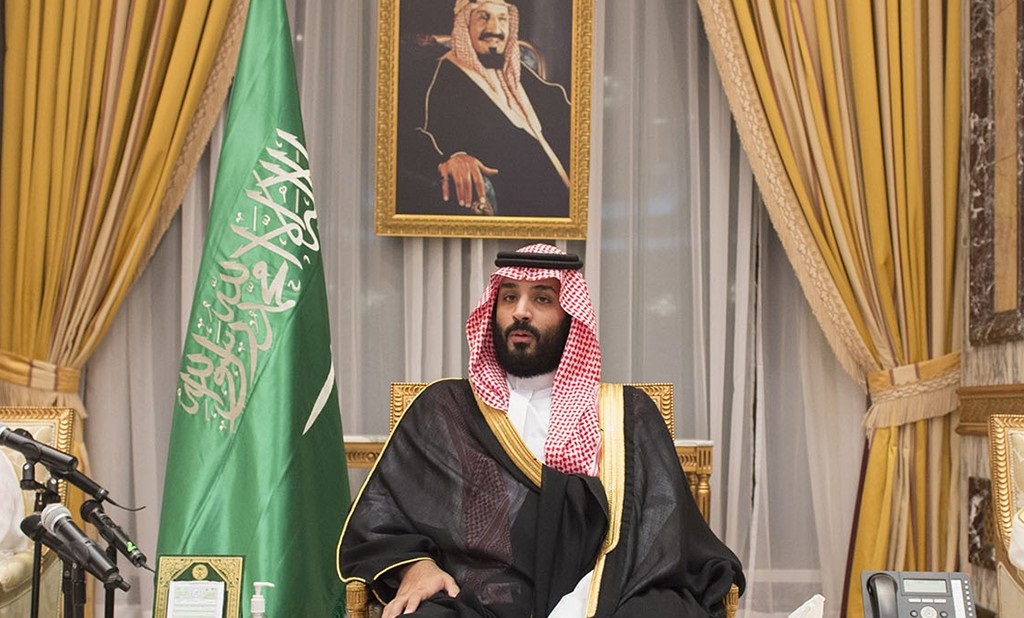The Future of Wahhabism Under the Blade of Reforms by Mohammad Binsalman
 According to international reporter of Defapress:Wahhabism is a spiritual movement that Mohammed bin Abdul Wahab founded in the 18th century in Najd, Saudi Arabia, and since 1744 has been accepted by the Saudi family. According to Wahhabi attitude, a main alteration in Islam should be made, for example, as the pilgrimage of graves and the consecration of some individuals. Wahhabism ideologically follows the beliefs of ibn Taymiyyah and is a jurisprudential follower of the Hanbali faith.
According to international reporter of Defapress:Wahhabism is a spiritual movement that Mohammed bin Abdul Wahab founded in the 18th century in Najd, Saudi Arabia, and since 1744 has been accepted by the Saudi family. According to Wahhabi attitude, a main alteration in Islam should be made, for example, as the pilgrimage of graves and the consecration of some individuals. Wahhabism ideologically follows the beliefs of ibn Taymiyyah and is a jurisprudential follower of the Hanbali faith.
The Wahhabis entered the power circle in 1925, united with the Al Saud. King Abdul Aziz, with the help of the Wahhabis, was able to unite Hejaz and Najd and make up the present Saudi state; it can even be claimed that he owes the Wahhabis to the reign of the Allies. Until the influx of the Al Saud and the configuration of the Saudi kings, Wahhabism had little power in the region and was in power in the same central areas of Saudi Arabia as Najd, a ethnic and highly retarded region.
The diversionist thinking of Wahhabism has been the motivation and the starting of many religious movements in the Muslim world, including India and Sumatra, to Sudan and North Africa, and has had a great collision on the Taliban movement in Afghanistan and some other Islamic movements in the twentieth century. ISIL's terrorist group starts to function with close to Wahhabi beliefs. An American Enterprise thinker compares Wahhabism with the "Ko Kleks Kalan" (an extremist racist) cult professor, Bernard Lewis, quoted by Bernard Lewis, who has vast oil coffers and succeeded in developing his own vision of the name Islam has been.
After a while, King Abdul Aziz concluded that with the Wahhabi, he could not commune with the outside world. He concluded that Wahhabism should be forbidden and from the outset created limitations for the Wahhabis; one of his most significant steps was to cut off the nose of forty Wahabi tribal chiefs who helped Abdulaziz get into power. Abdul Aziz's goal was to legitimize his government. Drilling and oil removal by Western countries faced a volley called Wahhabism.
Mohammed bin Salman's reform in Saudi Arabia was called economic reform and was intended at undermining Saudi reliance on oil revenues, but Middle East specialists say the reforms are in fact a cultural and social revolution in the traditional and complex infrastructure of Saudi Arabia. Interestingly, in recent months many freedoms, counting driving, entering sports stadiums, judging, issuing fatwa’s, judging and ... were awarded to Saudi women, and Wahhabism, with its tremendous and traditional organization, had to tolerate these reforms. Gave we must see the Wahhabi community, which has been framed by very fanatical and incredible teachings, can adapt itself to the pace of reform in Saudi Arabia's traditional society.
This wave of change and reform may be careful to be at the expense of the loss of Saudi society for Wahhabism. Mohammed bin Salman called for the introduction of the Saudi youth as a modern youth in the social space, and on the other hand, with these reforms in the field of women, they have been hated by the Wahhabi community. Women in Wahhab were considered to be low-minded and highly look upon.
According to Bin Salman's first speech after the document of 2030, which stated: “I am seeking to rule moderate Islam in Arabia?" It can be accomplished that Wahhabism sees only a few solutions that can carry on its political life. The first solution may be the emergence of a new version of Wahhabism, a Wahhabi rule that would infringe its rules and corroborate the actions of bin Salman. The second solution is the silence of the Hanbali and Wahhabi presents and the chase of a policy of patience and anticipation, and hopes for a kingdom whose kingdom of thought is nearer to the Wahhabis and reduces its limitations.
Document 2030, adopted by the United Nations General meeting in September 2015This document has 17 main objectives and 169 specific aims that will map the roadmap for the next 15 years, a document that is based on western living standards. Gender parity, the development of bilingual and multilingual education and ... are among the most significant elements of this document.
If we want to look at the background of these latest proceedings in Saudi Arabia, the United States has been burning all these incidents. The predatory of Saudi Arabia and other Arab countries by the United States is not a new topic. In his recent trip to Saudi Arabia, Trump signed a $ 460 billion arms deal with Mohamed bin Salman. Mohammad bin Salman, in view of the corrosion of his father, Malek Salman, is the only way for the kingdom to reach out to the United States directly and not directly to give way to its power.
In the interview, Tramp stated that we have spent $ 7 billion in the Middle East, and it's now time to spotlight on investing and alloting funds to US reconstruction after the Middle East. The United States never leaves the Middle East, and now the only pretext for preying the Arabs is Iran's terrorist tactic.
Message end
